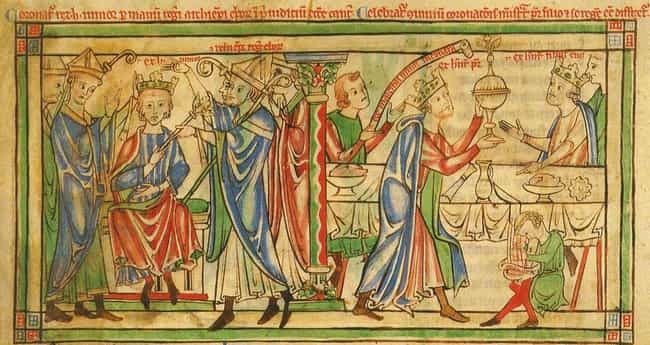Index
NABAAR

Not (?) Another Byzantine After Action Report

Not (?) Another Byzantine After Action Report
Hi, my fellow paradoxians! I'm Leandor, and its been years since I wanted to write my own AAR. In the past I used to read a lot of the ones that you usually posted around, but I barely had any participation -with the exception of one of my inspirations, the incredible AAR made by @CzokletMuss, the immortal story named "This is Madness"-.
Still, its time for me to step up and try, at least, to write one of my own. I hope you can forgive my written mistakes, as english is not my first language, so if you have any corrections please tell me!
Well, let's talk a bit about this story:
- Its (not?) another Byzantine AAR...! Well, it is, but I'd like to give it my own and unique approach. I'll feel free to use Console Commands if I see it fit for the story (ex. I changed the name of the Kingdom of Sicily to Naples), and you will soon notice the changes. I'm not going to cheat, but probably fix some bordergore and such. Still, this is going to be played as the Byzantine Empire, live from the City of the World's Desire under the tight hold of the Palaiologos dynasty.
This name is inspired after my favorite DnD Podcast, NADDPod!
- The Setting: This game has been played for more than 100 ingame years, so you'll see a very different map from the start. I will introduce the main characters from the beginning, which range from the Emperors to Kings, Sultans to Steppe Lords, so you know what the hell is going on here.
- Mods and DLC: I warn you, I'm going to use every DLC except Rajas of India, so expect wacky stuff like the Sunset Invasion, and some VIET events. My idea is to convert this to EU4, so I want a deeply different game for that moment.
- Rules: I'm playing this in Very Hard, and with heavy RP handicap for myself. My expansion will be slow, and mostly reactive to the world, after all, Anatolia has just been reclaimed! The Empire needs to rebuild... if it even has time for that.
- What can YOU, the reader, expect? I don't know, I haven't press Play yet. But, if you look at the date, I can assure you that something interesting is going to happen. Mongols? Aztecs? The Black Death? Who really knows? Let's dive in together!
So, that's all I have to offer you for now. The first episode it's getting written, and I'll post it tomorrow. I hope you like it, cause' its been a ton of time since the last time I shared something like this online!
See ya' soon!

The State of the World.
Anno Domini 1208, Christmas.
*Yes, Tolousse. I guess its a mix between the spanish "Tolosa" and the french "Toulouse".
Index
- Episode 0 - "Joy to the World" (December 25, 1208)
- Episode 1 - "Old Memories, New Fears" (January, 1209)
- Episode 2 - "A Century Old Battle" (1209-1210)
- Episode 3 - "Of Sons and Bastards" (1210-1220)
- Episode 5 - "A Changing World" (1220-1224)
- Episode 6 - "Prelude" (1224)
- Episode 7 - "Under Siege" (1224-1227)
- Episode 8 - "War and Loss" (1227-1233)
- Episode 9 - "Great Legends" (1233-1238)
- Episode 10 - "A Crusade's End" (1238-1245)
- Episode 11 - "Five Decades" (1245-1250)
- Episode 12 - "Death and Racing" (1250-1255)
- Episode 13 - "Beyond the Horizon" (1255-1258)
- Episode 0 - "Joy to the World" (December 25, 1208)
- Episode 1 - "Old Memories, New Fears" (January, 1209)
- Episode 2 - "A Century Old Battle" (1209-1210)
- Episode 3 - "Of Sons and Bastards" (1210-1220)
- Epilogue - The End of Helias (March, 1220)
- Episode 5 - "A Changing World" (1220-1224)
- Episode 6 - "Prelude" (1224)
- Episode 7 - "Under Siege" (1224-1227)
- Episode 8 - "War and Loss" (1227-1233)
- Episode 9 - "Great Legends" (1233-1238)
- Episode 10 - "A Crusade's End" (1238-1245)
- Episode 11 - "Five Decades" (1245-1250)
- Episode 12 - "Death and Racing" (1250-1255)
- Episode 13 - "Beyond the Horizon" (1255-1258)
Edit: Welcome to the land of failed translations and misspellings! Mwahaha!
Last edited:




















































































